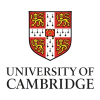Postdoctoral Research Associate in determining mechanisms of centromere seeding and inheritance
Publicerad 2024-12-16
We are seeking
to appoint an enthusiastic and driven Postdoctoral Research Associate who is keen to develop a career in research and discovery, to join the lab of Professor Lars Jansen. You will have a background in broad areas of molecular and cell biology with experience in hypothesis-driven, mechanistic research. Centromeres are a paradigm in chromatin-based inheritance and offer a unique opportunity to discover principles of epigenetic memory. As part of the Jansen lab, you will be integrated into a dynamic team working on CENP-A chromatin assembly and inheritance. Projects we can explore include discovering how the histone variant CENP-A assembles selectively at centromeres, how neocentromeres form, defining the role of alpha-satellite DNA, and determining the cell cycle control mechanisms that ensure the stable transmission of centromeric chromatin. You will be based at the Department of Biochemistry, a world-class research facility featuring the latest techniques in NGS, imaging, and proteomics. We are an open science, collaborative, and inclusive team fostering career development. Projects will involve opportunities to further develop your skills in chromatin dynamics, high-end live cell imaging, and the latest genomics technologies, including nanopore long-read sequencing. You will be based in the open-plan laboratories located in the Department of Biochemistry, embedded within the Oxford science campus, walking distance of other departments, colleges, shops, museums, and parks. The Jansen lab organizes regular group meetings and journal clubs, presents at departmental seminar series and national/international conferences. We also closely collaborate with Dominika Gruszka, a single-molecule expert at the Kavli Institute, with whom we will have joint meetings and collaborative projects. This full-time fixed-term post is funded by the Wellcome Trust for up to 2 years in the first instance, with the possibility of further extension subject to the availability of funds. The actual starting salary offered will be based on qualifications and relevant skills acquired and will also be determined by the funding available. What We Offer Your happiness and wellbeing at work matters to us, so we offer a range of family friendly and financial benefits including: • An excellent contributory pension scheme• 38 days annual leave• A comprehensive range of childcare services• Family leave schemes• Cycle loan scheme• Membership to a variety of social and sports clubs• Discounted bus travel and Season Ticket travel loans The University also runs an enormous amount of social groups and sports clubs for those looking for more than just a great place to work. About you You will hold a PhD/DPhil or be near completion of a PhD/DPhil in a relevant subject area and have sufficient and relevant specialist knowledge to participate in the research programme. Experience in hypothesis-driven mechanistic research is essential as is having extensive experience in the area of molecular and cellular biology, using genomics, ChIP and Cut&Run-seq, fluorescent imaging and genetic engineering of cells in culture. You will have the ability to manage your own academic research and associated activities and have previous experience of contributing to publications. Contribution of ideas for new research projects and research income generation is expected, as is having excellent communication skills, including the ability to write for publication, present research proposals and represent the research group at meetings. Application Process


